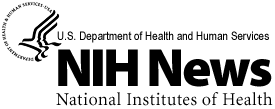| ALLHAT Study Findings for Racial
Groups Show Diuretics Work Better than Newer Medicines
for High Blood Pressure
Diuretics work better than newer therapies in treating
high blood pressure and reducing risk of heart disease
in both black and non-black patients, according to
a long-term, multi-center trial of antihypertensive
therapies funded by the National Heart, Lung, and
Blood Institute of the National Institutes of Health.
This analysis by race confirms earlier findings on
the effectiveness of diuretics and emphasizes that
diuretics should be preferred as a first therapy for
most patients with high blood pressure.
Findings of the analysis by race of the "Antihypertensive
and Lipid-Lowering Treatment to Prevent Heart Attack
Trial," or ALLHAT, will appear in the April 6,
2005, issue of The Journal of the American Medical
Association. ALLHAT is the first large scale
trial—with 33,357 participants—to compare
diuretics, calcium channel blockers, and ACE inhibitors
as initial therapies in a population with a substantial
number of black participants.
The study concludes that diuretics are either similar
or superior to newer drugs in lowering blood pressure,
in tolerability, and in preventing the major complications
from high blood pressure. Across both racial subgroups,
there was substantially higher risk of heart failure—37
percent—among participants taking calcium channel
blockers compared with those on diuretics. When compared
with ACE inhibitors, diuretics were more effective
in preventing cardiovascular disease, especially heart
failure, for all participants and significantly more
effective in reducing high blood pressure and preventing
stroke in blacks. Based on this study finding, the
authors conclude that as the initial drug for treating
high blood pressure, ACE inhibitors work less well
than alternatives in black patients.
“This analysis confirms and extends to all races
ALLHAT’s original conclusion that diuretics
are the right first-line therapy for high blood pressure.
While some other recent studies have evaluated newer
therapies (including drug combinations), the weight
of evidence, particularly in this multi-racial study,
supports the diuretic recommendation,” said
Dr. Jeffrey Cutler, NHLBI Senior Analyst and study
co-author.
High blood pressure affects about 65 million Americans,
or one in four adults, and its prevalence increases
with age — more than half of those over age
60 have hypertension. High blood pressure is a risk
factor for heart disease and the chief risk factor
for heart failure and stroke.
The multi-center ALLHAT study is conducted under a
contract with the University of Texas Health Science
Center at Houston; Dr. Barry Davis is the Principal
Investigator and study co-author.
To arrange an interview with Dr. Cutler, contact the
NHLBI Communications Office at (301) 496-4236 or email
nhlbi_news@nhlbi.nih.gov. To arrange an interview
with study author Jackson Wright, M.D., of Case Western
Reserve University, please call George Stamatis, Director,
Public Relations, 216-368-3635. To arrange an interview
with Dr. Davis, call UT-Houston at 713-500-3030.
Current blood pressure control recommendations are
provided in The Seventh Report of the Joint National
Committee on Prevention, Detection, Evaluation, and
Treatment of High Blood Pressure, issued by the
NHLBI's National High Blood Pressure Education Program
in 2003. The report is available online at http://www.nhlbi.nih.gov/guidelines/hypertension/index.htm
NHLBI is part of the National Institutes of Health
(NIH), the Federal Government's primary agency for
biomedical and behavioral research. NIH is a component
of the U.S. Department of Health and Human Services.
NHLBI press releases and other materials including
information about high blood pressure and heart disease,
are available online at www.nhlbi.nih.gov.
|

